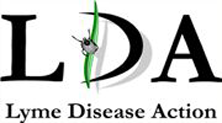The warming weather is bringing the ticks out, and it’s not just pets that are at risk! Ticks are blood sucking members of the spider family and the stage that attaches to humans is very small – about the size of a poppy seed. Easy to miss clinging on behind your knee! Ticks can be found all over the UK – anywhere in rough vegetation that protects the ticks from drying out. This can be in woods, commons, mountains, long grass beside footpaths and even shady garden shrubberies.
Ticks can transmit several diseases, but the most common in the UK is Lyme disease. Not all ticks carry infection, but it is important to check for ticks and remove any properly without squashing, as soon as possible. Lyme Disease Action has different tick removers available from its on-line shop.
Check your skin carefully after a walk – especially moist protected areas like the groin, behind the knee and the hairline of small children. Ticks can be brought into the house on clothing and pets and may find you later. Check your dogs after a walk and leave your outdoor clothes outside or brush them off well.
Lyme disease causes a wide range of symptoms in humans which may include a spreading red rash, headaches, a stiff neck, extreme fatigue, muscle and joint pain and light and sound sensitivity. Symptoms appear on average 10-14 days after a tick bite, so go to your GP promptly if you see a rash or feel ill. Diagnosed and treated at an early stage, it is usually curable with antibiotics but if untreated it can spread to joints, heart and the central nervous system and be more difficult to cure.
“Awareness is key” says Stella Huyshe-Shires, chair of Lyme Disease Action. “We are steadily improving knowledge amongst GPs as well as the public, and working to influence research and improve diagnosis and treatment.”
Ends/13th May 2016
Further information:
Essential information on ticks and Lyme disease is available for the public and for doctors on the LDA website https://www.lymediseaseaction.org.uk/ including links to Public Health England and NICE.
The Royal College of GPs has an online training module on Lyme disease which is free of charge to all health professionals. http://elearning.rcgp.org.uk/course/info.php?popup=0&id=164
Issued on behalf of Lyme Disease Action, a UK-registered charity striving for the prevention and treatment of Lyme disease and associated tick-borne diseases – www.lymediseaseaction.org.uk
For more information, or to speak to Stella Huyshe-Shires, the Chair of Lyme Disease Action, please contact the LDA press office on – press@nulllymediseaseaction.org.uk

 Printer Friendly
Printer Friendly